Growing Eggplant |
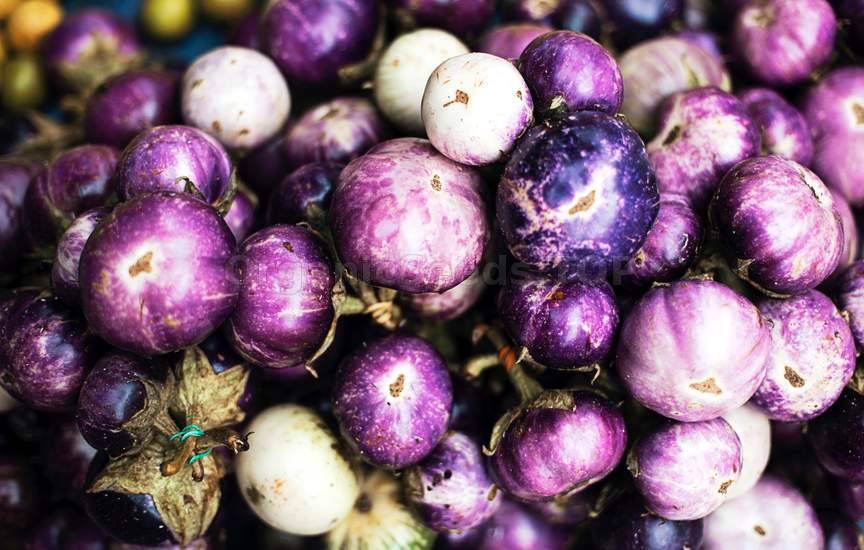 Growing eggplant is a must if you’re a fan of outdoor grilling! These stately plants grow well and look beautiful in containers, ornamental borders, raised beds, and traditional in-ground gardens. Small-fruited varieties tend to be especially heavy bearers, and you can expect to pick a dozen or more from each Ichiban plant over the summer in warm climates. Larger varieties like Black Beauty and White, which bear more traditional-sized fruits, are equally impressive whether in the garden or kitchen, where they can be stuffed, grilled, or combined with summer herbs and tomatoes in homemade eggplant parmesan. Soil, Planting, and Care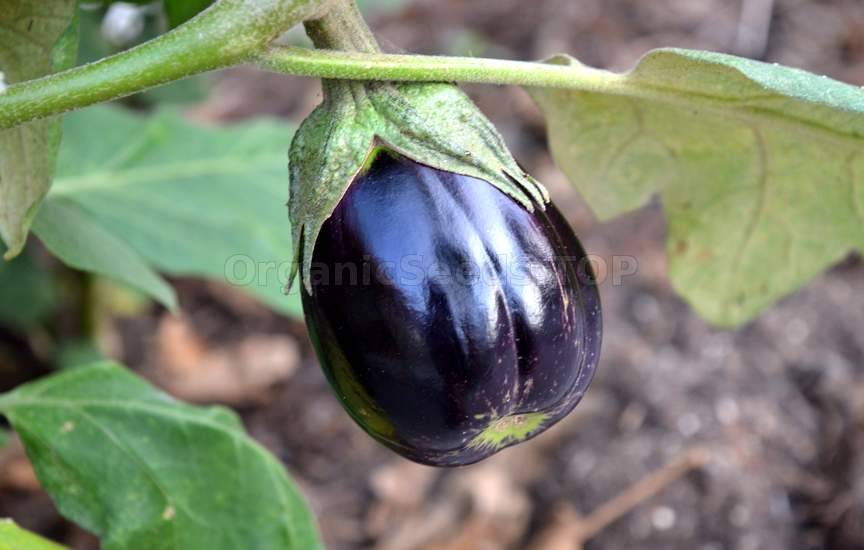 Eggplant loves warmth and grows best in very sunny, well-drained locations. Raised beds that have been generously enriched with composted manure are ideal, but any fertile soil with a pH from 6.3 to 6.8 will satisfy the plants. Although their coarse, leathery leaves withstand hot weather in champion style, provide a generous mulch of hay, shredded leaves, or other biodegradable material beneath plants to keep the soil relatively cool and to hold moisture and keep down weeds.
Because eggplant really needs warm soil to grow well, gardeners in cool climates often do best growing the plants in large, dark-colored containers. On a sunny day, soil temperatures inside black pots may be 10 degrees or more higher than in-ground soil temperatures. Row covers are also a good option in cool climates, or even to protect plants from cool spells in warm climates. Open the ends of the row covers on warm days to let the bees reach the flowers for help with pollination. 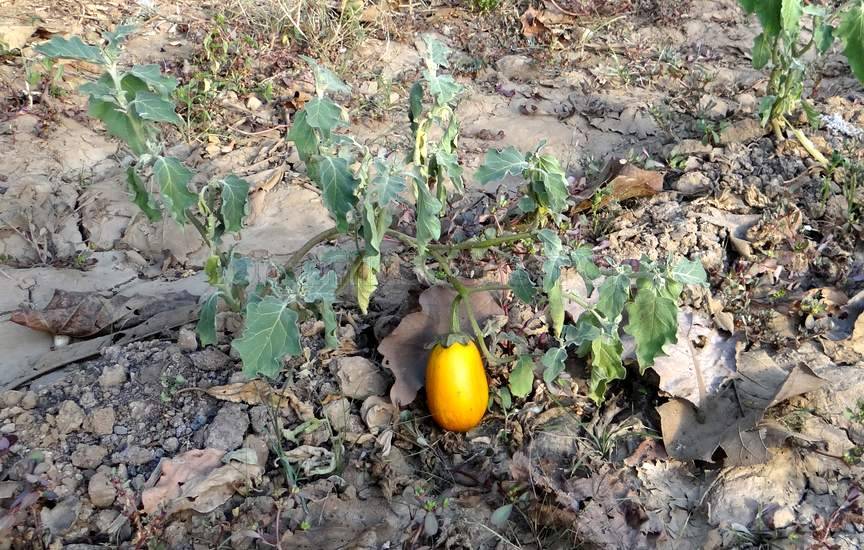 Eggplants grow into tall, angular plants, so they should be spaced 24 to 36 inches apart. Fertilize planting holes by mixing in a balanced timed-release or organic fertilizer, following the rates given on the label. At the same time, mix in 2 inches of compost to help hold moisture and fertilizer in the soil. Set plants at the same depth at which they are growing in their containers, and water well before spreading mulch. To keep plants healthy and well fed, give them a liquid plant food, such as Bonnie Herb, Vegetable & Flower Plant Food, every couple weeks. In the case of a late cold spell, you may need to delay planting seedlings until cool weather passes. Should this happen, keep the plants in a sheltered, sunny spot outdoors during the day, and bring them indoors at night. Be sure to keep plants watered or they will be small and bitter. They need a nice, steady supply of moisture but not so much that the soil is soggy. Drip systems or a soaker hose are ideal. Eggplants are prone to falling over when loaded with fruit, so you may want to tie plants to stakes to keep them upright. If you drive a stake into the ground just an inch or two from the plant at the time of planting, you won’t disturb the plant by trying to do it later. You can also use small tomato cages to support the plants. Troubleshooting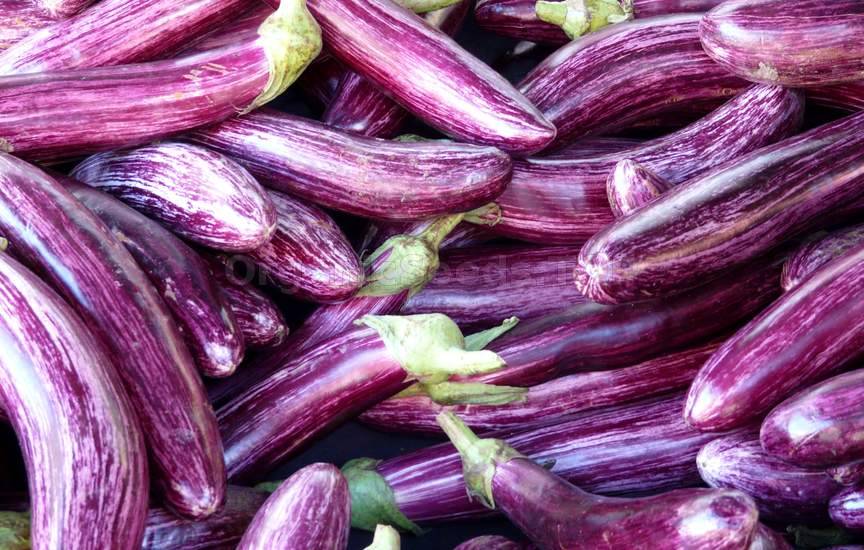 The tiny, black flea beetle is by far the worst nemesis of eggplant, but big, healthy plants usually produce well despite tiny leaf holes made by lots of flea beetles. In some areas, a common soil-borne fungus, verticillium wilt, can cause lants to wilt and die. Where verticillium is a common problem with non-resistant tomatoes (they are close eggplant cousins), grow eggplants in containers filled with premium potting mix.
Harvest and Storage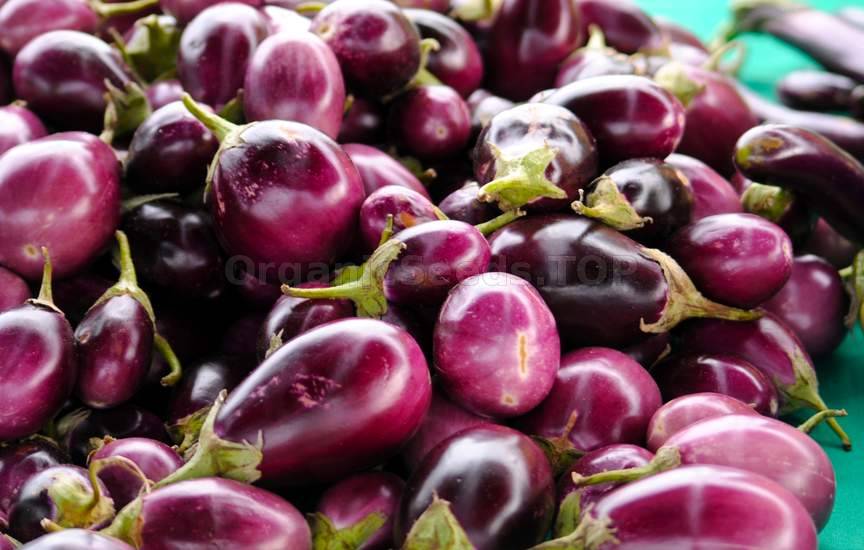 Fruits can taste bitter if picked when underripe or overripe, so harvesting is part of the eggplant grower’s art. A perfect fruit will stop growing larger, have a glossy skin, and show a sprinkling of soft, well-formed yet immature seeds when you slice it open. Fruits with no visible seeds are immature, and hard, dark seeds are found in overripe eggplants. Use pruning shears to harvest fruit with a short stub of stem attached, because the fruits will not pull free by hand. Rinse clean, pat dry, and store in the refrigerator for several days. Eggplant discolors rapidly when cut open, so work quickly when preparing slices or skewers for grilling. Marinades that include salt, vinegar, and/or lemon juice will keep cut pieces from darkening. You may need:Eggplant Seeds«Turkish Orange» - Organic Eggplant«White Lily» - Organic Eggplant SeedsSEEDS OF SOLANACEOUS |
|
|
